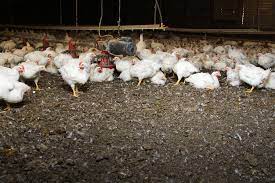It matters what we eat and how food is produced. More over a quarter of the global greenhouse gas emissions are caused by food systems.
Without lowering the carbon footprint of our food, we cannot fully address the climate catastrophe. The situation is only becoming worse as the world population rises and hunger results from the disruption of food exports caused by war. Global consumption of meat and dairy products is increasing along with the wealth and urbanization of people.
Our primary source of food emissions comes from livestock, which is also the third-highest global emitter of emissions at 14.5 percent, behind energy (35 percent) and transportation (23 percent ).
Many promote switching to diets high in or exclusively composed of plants to reduce these emissions. However, will those who have a strong aversion to meat genuinely choose toswitch? The Mediterranean diet, which includes some meat while staying largely plant-based and nutritious, is the sweet spot, according to our most recent studies.
What is the issue?
Large tracts of land are needed for cattle raising, along with inputs for water and feed. Increased risk of zoonotic diseases like COVID-19 and antibiotic resistance are associated with more intense animal production, as are biodiversity loss, land degradation, waterway pollution, and microbial resistance.

Although techniques for reducing livestock emissions are being developed, production is only one part of the equation. We must also take demand into account if we are to really make a difference.
It is doubtful that livestock emissions will decrease quickly and significantly enough without lowering the general demand for meat and dairy. We consume a lot of meat and dairy in developed nations like Australia. These consumption rates could be decreased to lower greenhouse gas emissions and other environmental harm.
Which diet should we follow then? Any appropriate diet must undoubtedly provide sufficient nourishment. Although meat offers necessary nutrients, consuming too much of it has been related to illnesses including cancer. It's crucial to take a diet's environmental and health credentials into account. We can also include animal welfare in this. This is typically worse in livestock farming that is intense.
By identifying wholesome, environmentally friendly diets that prioritize higher animal care, we seek to assist people in making ethical dietary decisions.
What did we discover?
We evaluated the effects of five popular plant-rich diets on the environment (carbon footprint, usage of land and water), human health, and animal welfare. We concentrated on the food production in wealthy nations.
The diets that we looked at were:
Mediterranean (plant-heavy with small amounts of red meat, moderate amounts of poultry and fish)
Flexitarian/semi-vegetarian (meat reduction)
Pescatarian (fish, no other meat)
Vegetarian (no meat but dairy and eggs OK)
Vegan (no animal products)
Compared to the omnivorous diet, all five of these plant-rich diets—including the no-meat diets—had a smaller negative environmental impact (vegan and vegetarian) having the smallest effect
However, we must add the disclaimer that environmental footprint measurements used to compare diets are overly straightforward and ignore significant indirect effects of changing diets
Overall, the vegan and vegetarian diets had the highest results for animal welfare, while the Mediterranean diet was determined to be the healthiest for humans. Vegan and vegetarian diets were discovered to be the most "sustainable" diets based on lowering our food footprint, maintaining good health, and lowering adverse effects on farm animals when we incorporated all three measurements.

We are aware of the best diets. But which diet will individuals actually pick?
What we ought to do in a perfect world and what we actually do frequently diverge. We looked at what individuals are actually willing to eat to address this. Is advocating a vegan or vegetarian diet the best strategy for lowering the consumption of meat and dairy products?
We surveyed 253 Australians about their current diets and the five plant-rich diets they would be open to trying to learn more.
It is not unexpected that the majority of our respondents (71 percent) identified as omnivores because Australia has a high meat consumption rate.
It should therefore come as no surprise that the vegan and vegetarian diets had the lowest adoption rates because they required a significant change in the way that most individuals ate.
As a consequence, the Mediterranean diet, which calls for a little decrease in meat consumption, had the highest chance of being adopted. We determined that it was the optimal diet to advocate for due to its high health advantages and mild effects on the environment and animal welfare.
Even though some of these findings may seem obvious, we think that by considering food consumption from multiple angles—including social, environmental, human health, and animal welfare—we can identify potential problems and develop workable solutions.
For instance, promoting diets like the vegan diet, which most people actually aren't willing to eat, is probably a waste of time and money. However, the majority of research examining the environmental impact of various diets has favored vegan and vegetarian diets, despite the obvious lack of excitement from individuals.
Therefore, it's crucial to adopt a larger perspective. The strategies that have the best possibility of succeeding must be used if we are serious about cutting back on our consumption of meat and dairy.
That means that in high-income nations like Australia, we should advocate for the Mediterranean diet as the greatest way to start reducing demand for emissions-intensive meat and dairy. To start building a more sustainable global food system, we must start small.


You must be logged in to post a comment.